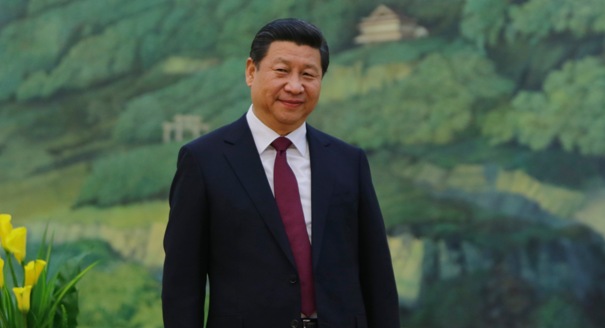Source: China Leadership Monitor
Xi Jinping’s speech before the Central Conference on Work Relating to Foreign Affairs—held November 28–29, 2014, in Beijing—marks the most comprehensive expression yet of the current Chinese leadership’s more activist and security-oriented approach to PRC diplomacy. Through this speech and others, Xi has taken many long-standing Chinese assessments of the international and regional order, as well as the increased influence on and exposure of China to that order, and redefined and expanded the function of Chinese diplomacy. Xi, along with many authoritative and non-authoritative Chinese observers, presents diplomacy as an instrument for the effective application of Chinese power in support of an ambitious, long-term, and more strategic foreign policy agenda. Ultimately, this suggests that Beijing will increasingly attempt to alter some of the foreign policy processes and power relationships that have defined the political, military, and economic environment in the Asia-Pacific region. How the United States chooses to respond to this challenge will determine the Asian strategic landscape for decades to come.
***
On November 28 and 29, 2014, the Central Chinese Communist Party (CCP) leadership convened its fourth Central Conference on Work Relating to Foreign Affairs—the first since August 2006.1 The meeting, presided over by Premier Li Keqiang, included the entire Politburo Standing Committee, an unprecedented number of central and local Chinese civilian and military officials, nearly every Chinese ambassador and consul-general with ambassadorial rank posted overseas, and commissioners of the Foreign Ministry to the Hong Kong Special Administrative Region and the Macao Special Administrative Region.
This Foreign Affairs Work Conference (FAWC) followed another important post–18th Party Congress foreign affairs–related meeting: the October 2013 Work Forum on Chinese Diplomacy Toward the Periphery.2 Unlike that meeting, however, the FAWC dealt with all aspects of China’s foreign affairs in the civilian diplomatic realm. As with the 2006 meeting, this FAWC sought to establish “the guidelines, basic principles, strategic goals and major mission of China’s diplomacy in the new era and endeavor[ed] to make new advance[s] in China’s foreign relations,” and to summarize and assess Beijing’s foreign relations since the 18th Party Congress held in November 2012. These tasks were carried out primarily by Xi Jinping, general secretary of the Central Committee of the Communist Party of China (CPC), Chinese president, and chairman of the Central Military Commission, in an “important” address delivered to the conference.3 Hu Jintao delivered a similar address in 2006.4
While Xi also gave important foreign affairs–related speeches at the 2013 Periphery Diplomacy Conference, as well as at the May 2014 international Conference on Interaction and Confidence-Building Measures in Asia (CICA) and the November 2014 22nd APEC Economic Leaders’ Meeting,5 his address to the FAWC was especially notable, given the rarity, size, and scope of the meeting and the comprehensive nature of Xi’s remarks, which covered: (1) China’s recent diplomatic accomplishments; (2) the key features of the international environment at present and in the future; and (3) the top priorities for Chinese diplomacy going forward. The speech constitutes the fullest authoritative statement yet on the current Chinese regime’s views and policies in the foreign affairs arena.This article will assess the substance and significance of Xi’s FAWC speech, especially as viewed by Chinese commentators. The first part summarizes the main contents of the speech—as described by authoritative sources—and identifies what is new or different when compared to other speeches and remarks by Xi and senior officials, reports by authoritative sources, and the previous 2006 FAWC. As with all central work conferences, the actual text of the speeches delivered to the FAWC is not released to the public. Accordingly, this article relies on summaries presented by the Ministry of Foreign Affairs and the Xinhua News Agency.6 Although such summaries doubtless omit some elements of Xi’s speech, reliable Chinese sources have indicated that the public summaries are broadly representative of the actual text. The second part of the article examines the authoritative, quasi-authoritative, and non-authoritative Chines assessments of the speech, based on the definition of those sources utilized in past CLM articles.7 The final section of the article offers some brief observations on the overall importance of the speech for China’s foreign policy at present and in the future, including its implications for Beijing’s relations with the United States and toward the Asia-Pacific region...
This article was originally published by China Leadership Monitor. The full text is available here.
Notes
1 The first two work conferences were held in 1971 and 1991. I am indebted to Alice Miller for providing this information.
2 For discussion of the Periphery Diplomacy Conference, see Michael Swaine, “Chinese Views and Commentary on Periphery Diplomacy,” China Leadership Monitor, no. 44 (Summer 2014).
3 Ministry of Foreign Affairs of the People’s Republic of China, “The Central Conference on Work Relating to Foreign Affairs Was Held in Beijing,” November 29, 2014, http://www.fmprc.gov.cn/mfa_eng/zxxx_662805/t1215680.shtml. “Xi eyes more enabling int’l environment for China’s peaceful development,” Xinhua, November 30, 2014.
4 “PRC President Hu Jintao Addresses Central Foreign Work Meeting in Beijing,” Xinhua, August 23, 2006.
5 See: Xi Jinping, “Diplomacy with Neighboring Countries Characterized by Friendship, Sincerity, Reciprocity and Inclusiveness,” remarks at the Conference on the Diplomatic Work on Neighboring Countries, October 24, 2013, in Xi Jinping, The Governance of China (Beijing: Foreign Languages Press, 2014), 325. Xi Jinping, “New Asian Security Concept for New Progress in Security Cooperation,” remarks at the Fourth Summit of the Conference on Interaction and Confidence Building Measures in Asia, May 21, 2014, http://www.fmprc.gov.cn/mfa_eng/zxxx_662805/t1159951.shtml. Xi Jinping, president of the People’s Republic of China, remarks delivered at the 22nd APEC Economic Leaders’ Meeting, Beijing, China, November 11, 2014, http://www.fmprc.gov.cn/mfa_eng/wjdt_665385/zyjh_665391/t1210451.shtml.
6 Ministry of Foreign Affairs of the People’s Republic of China, “The Central Conference on Work Relating to Foreign Affairs Was Held in Beijing.” “Xi eyes more enabling int’l environment.”
7 The definition of the three categories of sources examined are based on the views of Alice Miller, to whom the author is deeply indebted.



-2.png)
-1.png)
